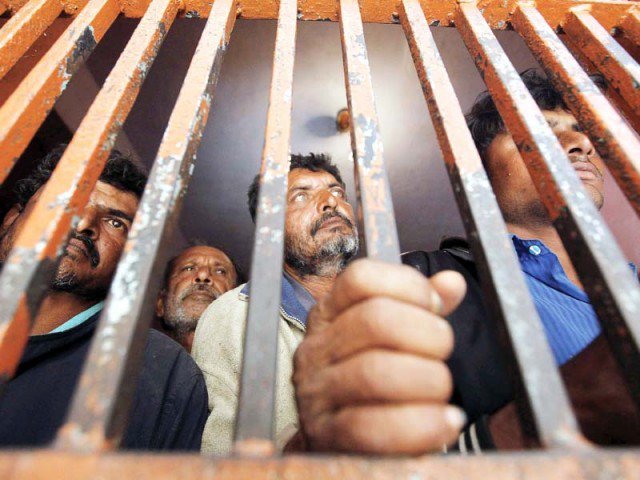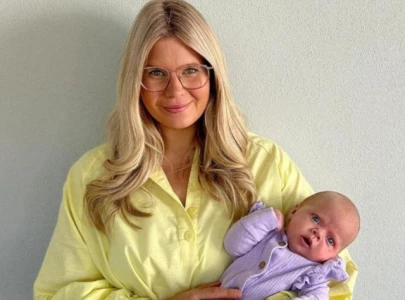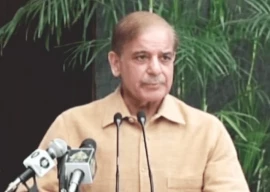
Mohammad Gulzar in Pakistan had almost lost hope of seeing his 70-year-old father, who disappeared in neighboring India hours after being acquitted by a high court in a 2019 terrorism case.
It was only last week when Gulzar received a phone call from an Indian journalist, who informed him that his father is currently languishing in a police station in India’s northern Uttar Pradesh state despite the acquittal.
Gulzar’s father, Mohammad Waris, was arrested in the Shamli district of Uttar Pradesh – India’s most populous state – in 2000 when he went to see an “old friend.”
The police claimed to have recovered “a few guns and hand grenades” from his possession during a raid on the house of his friend, where he was staying.
Hailing from the Wazirabad district of the northeastern Punjab province of Pakistan, Waris, along with his friend Ashfaq Nande and three other persons, was booked on terrorism charges, according to Indian English daily The Times of India.
The police had claimed they had found links between Waris and Jaish-e-Mohammad, an outlawed militant outfit blamed for the 2008 deadly Mumbai attack.
Furthermore, he was also booked under the Foreigners Act.
Following a 17-year lengthy and cumbersome judicial process, during which Waris continued to plead not guilty, he was handed down life imprisonment in the terrorism case and three years in jail under the Foreigners Act by a trial court in 2017.
However, the Allahabad High Court, which found “glaring structural discrepancies” on the prosecution’s part, set aside the conviction in the terrorism case. Nonetheless, the court upheld the three-year term under the Foreigners Act.
Since Waris had already spent 19 years in jail, he was technically released in December 2019, according to The Times of India.
“We had lost contact with my father in 2017. I came to know about my father’s acquittal through a newspaper clipping that was sent to me by his Indian friend in 2019,” said Gulzar, 40, who was just 19 when his father was arrested.
No end to ordeal
Speaking to Anadolu Agency, he said: “We had thought it was an end to a long ordeal. But we were wrong. He simply disappeared and we did not know his whereabouts until this telephone call.”
Gulzar, who works in the cutlery industry for which Wazirabad is famous globally, is currently shuttling between the interior and foreign ministries, seeking their help for his father’s return.
Read Six Pakistani fishermen released by India reach home
According to the Indian media, Waris, who is currently under a 24-hour watch at the Babri police station in Shamli, could not be deported to his homeland as the Pakistani government has refused to recognize him as its citizen.
Rebutting the claim, Pakistan’s Foreign Ministry spokesman Asim Iftikhar said that Waris’s nationality was confirmed “long time back” in 2005.
“Pakistan Mission continuously writes to Indian MEA (Ministry of External Affairs) for his repatriation,” Iftikhar told Anadolu Agency.
“The claim that ‘Pakistan refused to accept the prisoner’ is incorrect,” he added.
The situation is not different for Indian national Nanjiraja, 45, from the western state of Gujarat, who is presently languishing in a jail in Pakistan’s commercial capital Karachi.
His daughter Mamta Jagdish told Anadolu Agency that her father, a fisherman, has been lodged in a Pakistani jail since 2018.
“It is his fifth year in prison. It was during the Hindu festival of Diwali that year when he along with others had gone for routine fishing but was arrested by Pakistani security agencies,” she said.
“My father is a simple fisherman. We are waiting for his release and request the (Pakistani) government to release him ... the whole family is suffering because of his arrest,” she pleaded.
The family has no information if Nanji has completed his sentence.
“We don’t receive letters from him. Only once, he sent a letter through a fisherman, in which he only wrote that he was fine,” Jagdish said
Stuck in hostilities
Gulzar, who received only seven letters from his incarcerated father during the last 21 years, applied several times for an Indian visa to see him.
“Every time, my application was turned down on a pretext that I had no sponsor in India,” he said, seeking “help” from Prime Minister Shehbaz Sharif and Foreign Minister Bilawal Bhutto-Zardari for his father’s return.
The two nuclear-armed neighbors often arrest each other’s nationals on different charges, including spying.
Strained relations between the two neighbors keep prisoners in jail for longer periods, and in some cases, even after they serve their sentences.
So much so, that many of them have been either killed or died during custody.
Fishermen from both sides have long been paying a heavy price for fraught relations between the two neighbors.
Both countries often arrest fishermen for violating each other’s seawaters due to poorly marked water boundaries and ill-equipped boats that lack the technology to specify exact locations.
Under the 2008 Agreement on Consular Access, both the countries exchange list of prisoners every Jan. 1 and July 1.
At present, 652 Indian fishermen and 51 civilians, whereas 282 Pakistani civilians, and 75 fishermen are currently languishing in each other’s jails.
In 2018, New Delhi and Islamabad had agreed to revive a joint judicial committee on prisoners comprising four members – retired judges from the higher judiciary – from each country.
India has nominated its four members, whereas Pakistan has yet to nominate its members, according to Jatin Desai, former secretary-general of Pakistan-India Peoples Forum for Peace and Democracy, a group of peace activists from both countries dealing with prisoners’ issues.
The committee, set up in January 2008, used to meet twice a year – once in India and once in Pakistan – until Oct. 2013. Since then, no meeting is held following escalating diplomatic tensions between the two sides.
The committee’s unanimous recommendations included the release of fishermen, women, juveniles, and mentally challenged prisoners.
More than half of incarcerated Indian fishermen, Desai said, have already completed their sentences.
Families suffer
Confirmation is another factor that delays the trial and provision of consular access to prisoners.
The 2008 Agreement on Consular Access says if some Indian or Pakistani is arrested in each other’s country, the consular access shall be provided within three months of his/her arrest.
However, the lacuna in the agreement is that it does not have a time limit for confirmation of the nationality.
“We have long been demanding that the deadline for confirmation of a prisoner’s nationality must not be beyond three months,” Desai said.
Several prisoners from both countries, he went on to say, have completed their sentences but they cannot be repatriated until their respective country confirms their nationality.
Calling for an “immediate” revival of the India-Pakistan Judicial Committee on Prisoners, Desai urged Islamabad to nominate its four judges.
“The committee members used to travel to India and Pakistan once in a year. They used to meet prisoners of their country in jails,” he said, arguing such things help prisoners to better explain their cases to the judges of their country.
Supporting Desai’s argument, Syed Kamal Shah, the chairman of Pakistan Fisher Folk Forum, a non-governmental organization that works for fishermen’s welfare, opined that fishermen who accidentally enter each other’s territorial waters should not be arrested straight away.
“They (fishermen) should be given a warning by respective maritime security agencies, asking them to go back because they do not trespass deliberately,” Shah told Anadolu Agency.
“The poor fishermen (from both sides) have to languish in jails, and back home their families suffer psychologically and financially,” he observed, urging the two governments to see this “crucial” issue from a humanitarian perspective rather than politics.


1727778647-0/diddy-(16)1727778647-0-165x106.webp)

1732014631-0/BeFunky-collage-(71)1732014631-0-165x106.webp)
1732012115-0/Untitled-design-(14)1732012115-0-270x192.webp)




1732011525-0/Express-Tribune-(8)1732011525-0-270x192.webp)










COMMENTS
Comments are moderated and generally will be posted if they are on-topic and not abusive.
For more information, please see our Comments FAQ